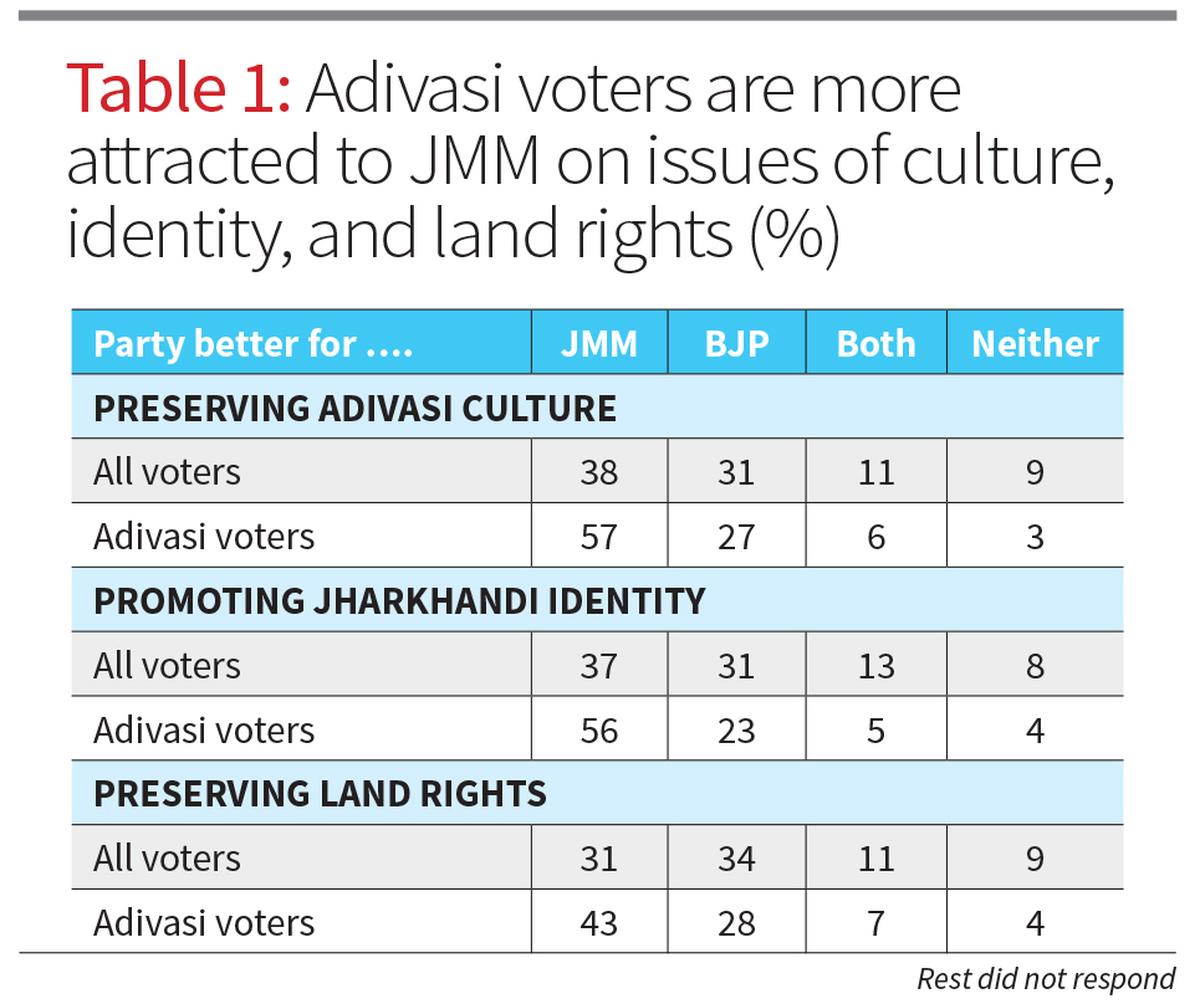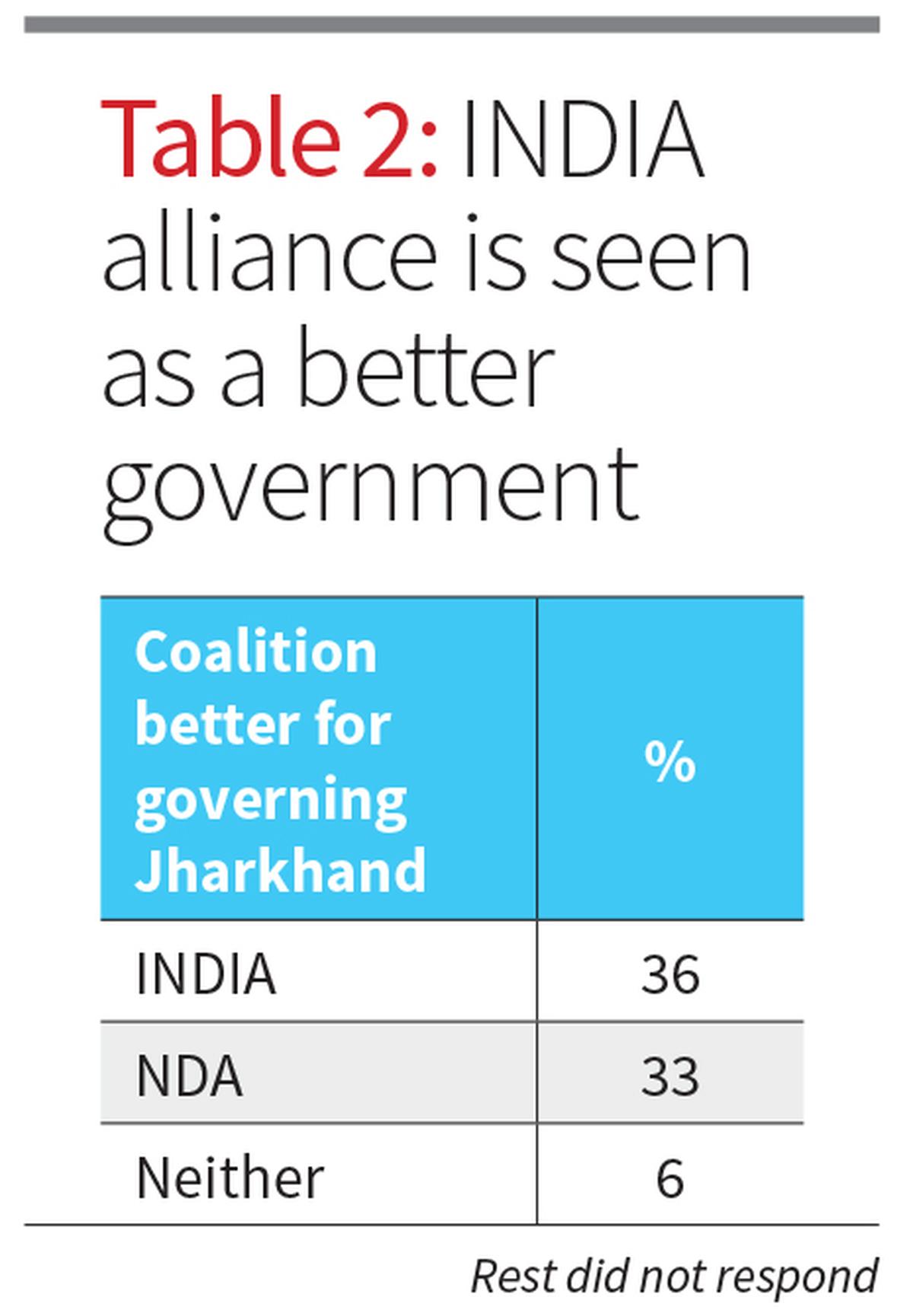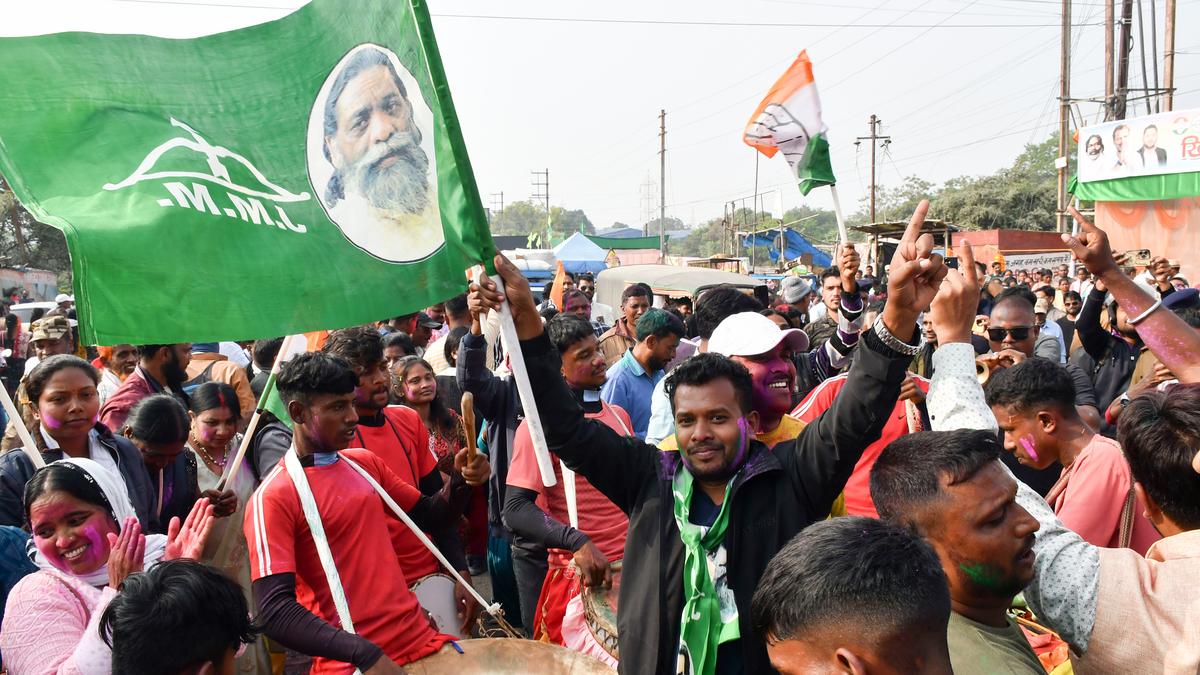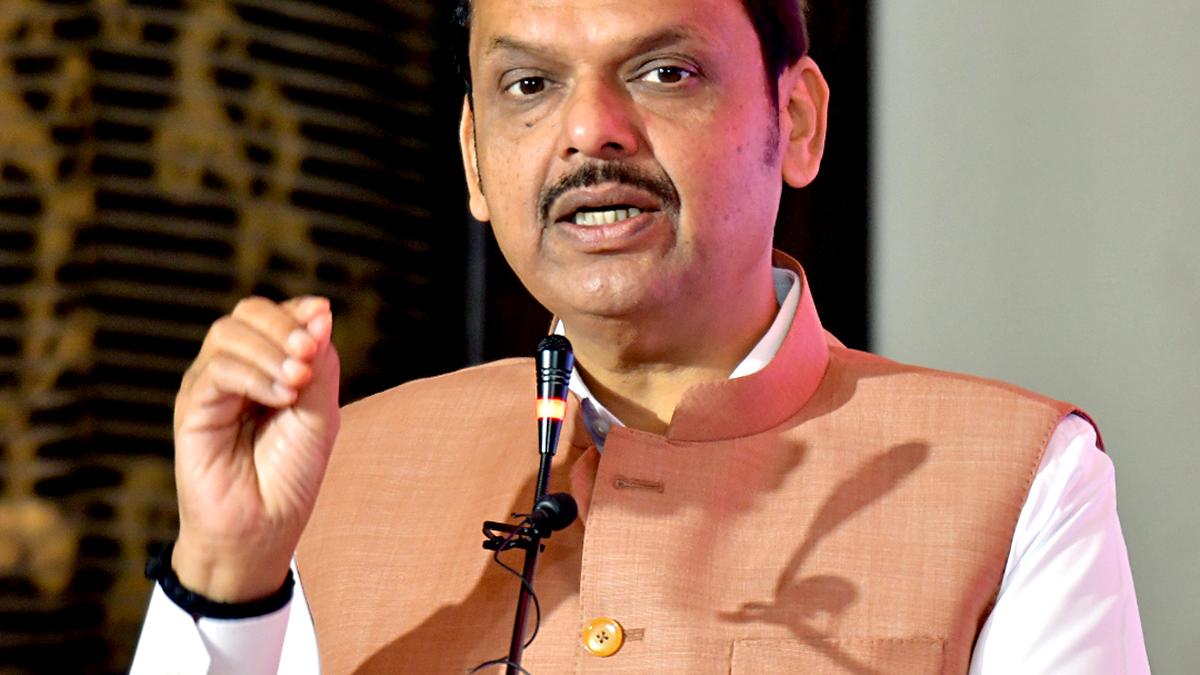
JMM supporters in Ranchi celebrate as INDIA bloc leads in the Jharkhand Assembly elections. File
| Photo Credit: ANI
Many factors contributed to the decent performance of the Jharkhand Mukti Morcha (JMM) and its INDIA (Indian National Developmental, Inclusive Alliance) bloc allies in Jharkhand. Buoyed by a campaign that championed Jharkhandi identity and Adivasi culture, the JMM reaffirmed its long-standing role as a guardian of Adivasi justice, culture, and land rights.
Jharkhand Assembly elections 2024: Full coverage
In stark contrast, the Bharatiya Janata Party’s (BJP) campaign leaned on divisive narratives such as “Jamai Jehad” and “Zameen Jehad”, alleging Bangladeshi Muslim infiltration, tribal land acquisition, and inter-community marriages. Promising to implement the Citizenship Amendment Act and the Uniform Civil Code, the BJP struggled to connect with the electorate effectively. Over the past five years, its attempts to assimilate Adivasis into the Hindutva fold and its pro-corporate policies — often perceived as exploitative of tribal land and resources — further alienated the community.

The INDIA bloc, led by the JMM, adopted a more careful approach, among one of which was pledging to implement land registries based on the 1932 survey to determine domicile status, a move that appears to have resonated with the voters. However, the alliance treaded cautiously during the campaign, acknowledging Jharkhand’s historical waves of migration from neighbouring States, and the sensitivity of the issue.
Data from Lokniti-CSDS show that the JMM has a strong appeal among the electorate. The party was seen as a better protector of Adivasi culture and Jharkhandi identity compared to the BJP. Among tribal voters, over half of the surveyed voters believed the JMM was best suited to safeguard these priorities, while only a quarter expressed the same trust in the BJP. While the BJP held a narrow edge on land rights among all the surveyed voters, tribal voters overwhelmingly trusted JMM on this issue as well (Table 1).

Overall, voters saw the INDIA alliance as better equipped to govern Jharkhand and favoured it over the BJP-led National Democratic Alliance (NDA) by three percentage points — 36% versus 33%, respectively) (Table 2). This election reaffirms that in Jharkhand, political success hinges on aligning with local identities and tribal concerns. The JMM’s strong resonance with voters reflects their yearning for a leadership that defends their culture, land, and future.
Devesh Kumar is a researcher at Lokniti-CSDS.
Published – November 26, 2024 02:30 am IST









![Best Weight Loss Supplements [2022-23] New Reports!](https://technologytangle.com/wp-content/uploads/2022/12/p1-1170962-1670840878.png)




